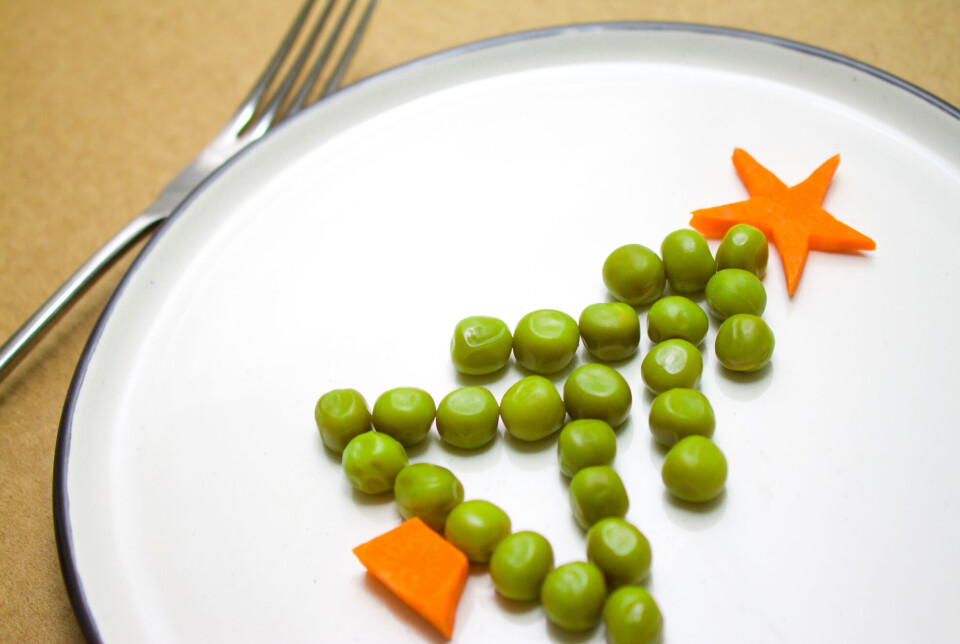
How to prepare for a vegetarian guest during Christmas
“It can quickly become a lot of hassle,” a food researcher believes. “It’s much easier to have a vegetarian visit than many think," a vegetarian says.
“Holidays and family gatherings are the most difficult for vegetarians. Only two out of ten think it goes smoothly,” Annechen Bahr Bugge says.
She researches food at OsloMet. Two years ago, she investigated what it means to be a vegetarian in Norway today. The survey had 800 participants, half of whom were vegetarians and vegans, while the rest ate fish but not meat.
Most found it easy to avoid eating meat in everyday life. Cafes and restaurants usually have suitable alternatives, and it was no problem at work and with friends.

But at Christmas, they are quite alone. Only three per cent of the Norwegian population eat vegetarian food on Christmas Eve.
Most are vegetarian
“Many make exceptions and choose to eat meat for Christmas dinner out of respect for tradition and the emotions around Christmas. But it’s also possible to eat the side dishes and perhaps bring some vegetarian food with you,” Bahr Bugge says.
In the past, the categories were rigid. Either you were a vegetarian or not. Now, many are flexitarians, meaning they avoid meat but eat it when it’s easiest or they have a craving for it.
But this does not apply to vegetarians and vegans. They eat neither meat nor fish.
Pål W. Thorbjørnsen, the information officer at the Norwegian Vegetarian Association, advises vegetarians to come prepared to Christmas gatherings. He agrees with Bahr Bugge that it’s wise to have ready-made products in your bag.
Still, it is much easier to have a vegetarian visit than many think. Vegetarian food is neither expensive nor demanding, according to Thorbjørnsen.
Most are vegetarian
“Most traditional Norwegian Christmas side dishes are usually vegetarian, such as sour cabbage, red cabbage, pea stew, desserts, mulled wine, and Christmas cookies. It’s usually just the main course that’s different,” Thorbjørnsen tells sciencenorway.no.
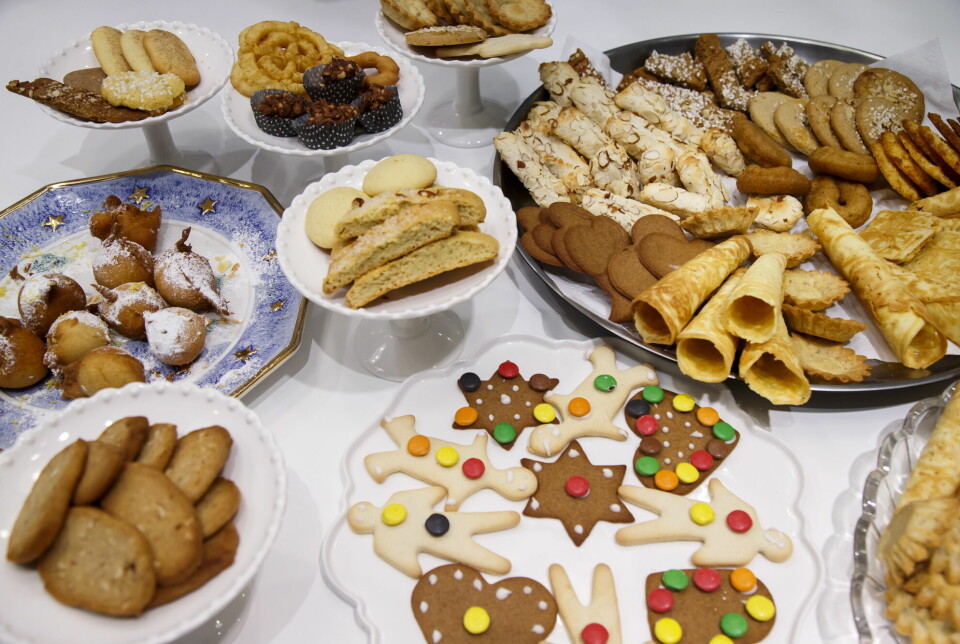
Most viewed
Nut roast is the traditional Christmas food for vegetarians.
“It’s been served at Christmas for close to 150 years, as long as there have been vegetarians in Norway. In recent years, ‘vegisterkaker’ have also become popular,” Thorbjørnsen says.
Vegisterkaker are the vegetarian version of 'medisterkaker', which are savory, round patties seasoned with herbs and spices. These are popular during Christmas.
“There are many ready-made products in the store, which make it easy for the host. I recommend asking the vegetarian guest what they prefer, which simplifies things for both parties.”
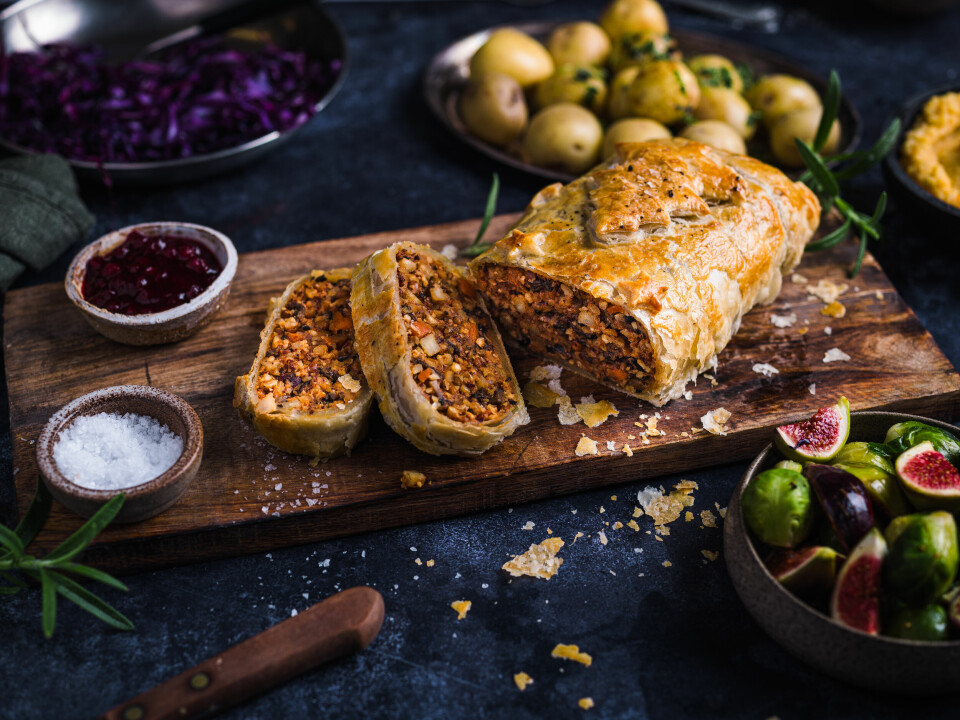
Nut roast and vegan ‘pinnekjøtt’
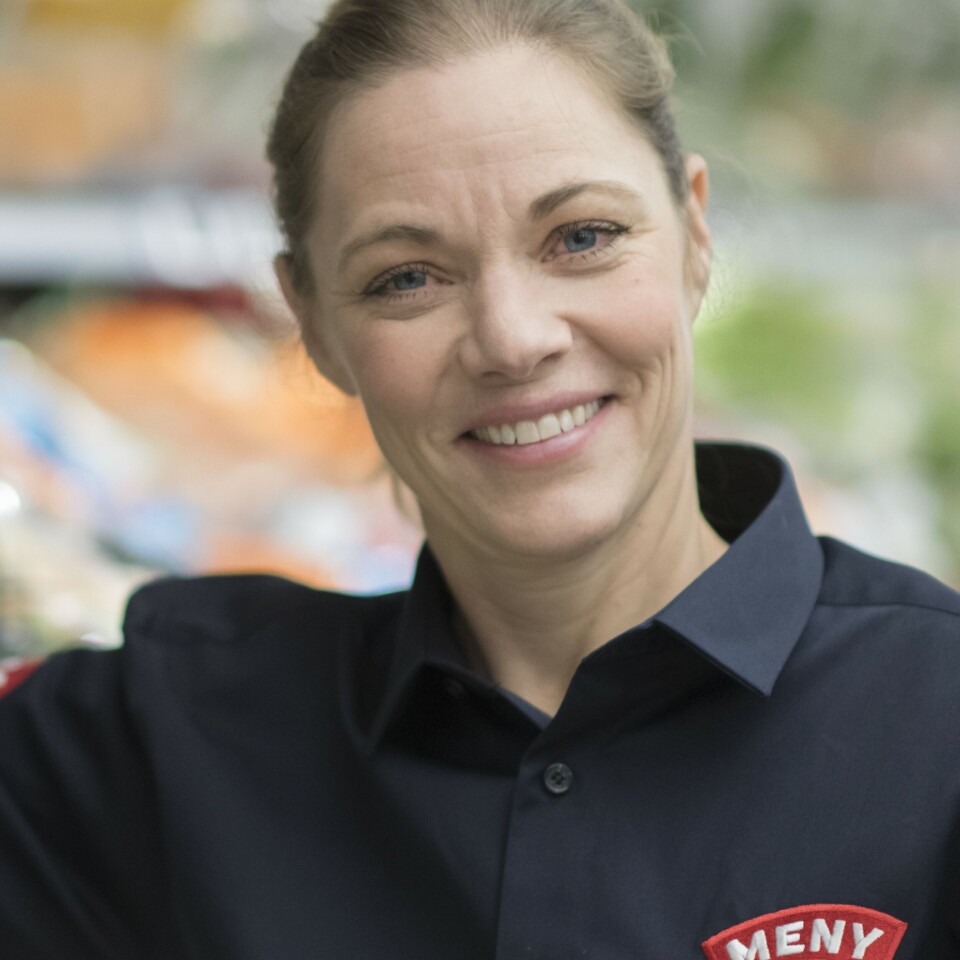
At the Norwegian grocery store chain Meny, they have ready-made products, but also recipes for vegetarian food.
“Our experience is that vegetarians and vegans are less likely to buy meat substitutes, but rather make dishes from scratch, with vegetables, lentils, beans, mushrooms, and nuts,” says Nina Horn Hynne. She is the communications manager at Meny.
The most popular vegetarian recipe on meny.no in December is nut roast. Then comes vegan pinnekjøtt, according to Horn Hynne. Pinnekjøtt is a traditional Norwegian Christmas dish which consists of salted, dried, and in some cases, smoked lamb ribs.
But like other Christmas foods, vegetarian food can also be bought ready-made. Meny sells nut roast, Christmas roast, ‘vegisterkaker’, and vegan Christmas sausage before Christmas.
Every December, sausage sales increase. This also applies to vegetarian sausages.
“This may indicate that vegetarians also eat sausages at Christmas,” Horn Hynne believes.
Christmas parties go smoothly
Christmas parties with many dishes and Christmas breakfasts are easier for vegetarians.
“There are so many dishes there that everyone should find something suitable. There’s no point in making this a bigger problem than it is,” Bahr Bugge says.
In a survey about eating habits during Christmas, she found that five per cent eat vegetarian food at Christmas parties. However, there’s a variation based on age and location. Ten per cent of younger individuals and ten per cent of those living in Norway’s capital Oslo opt for vegetarian options.
Even the most traditional Christmas restaurants offer vegetarian food.
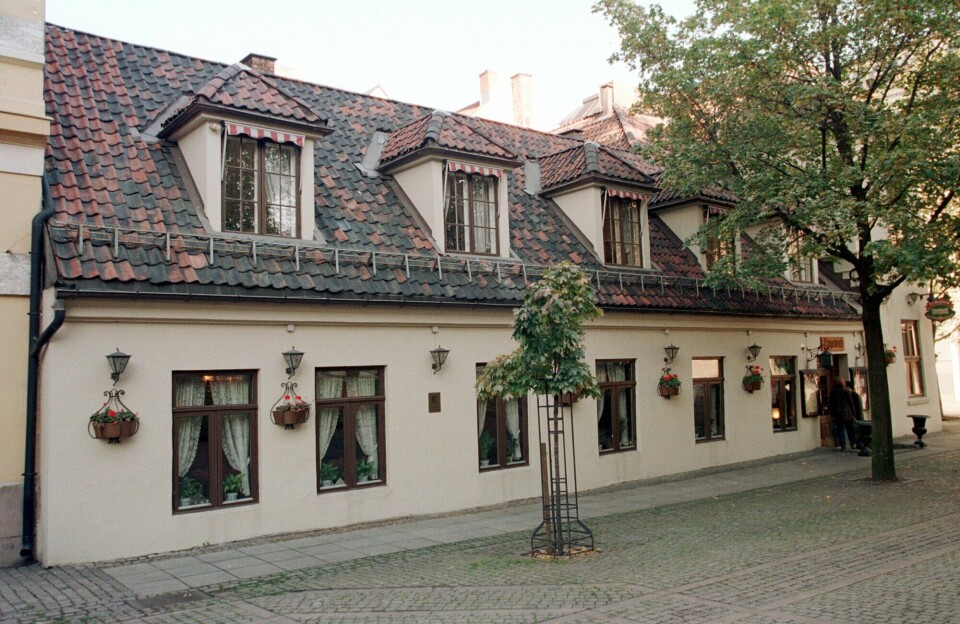
Vegetarian food in a land of meat
Café Engebret in Oslo has existed for 166 years. In December, they serve pork belly, pinnekjøtt, smalahove, and lutefisk.
“But we always have a vegetarian and vegan option,” restaurateur Kay Johnsen at Engebret says.
In December, vegetarians get beet tartare with hazelnuts as a starter. The main course is vegisterkaker made of lentils and chickpeas with root mash and pickled red cabbage, potatoes, and a butter sauce with Christmas spices.
Every day, about ten guests order the vegetarian or vegan option, according to Johnsen.
They also have green options on the menu at the restaurant Gamle Raadhus in Oslo in December.
“It’s especially at lunch that we notice many choose vegetarian over meat,” Jørn Lie says.
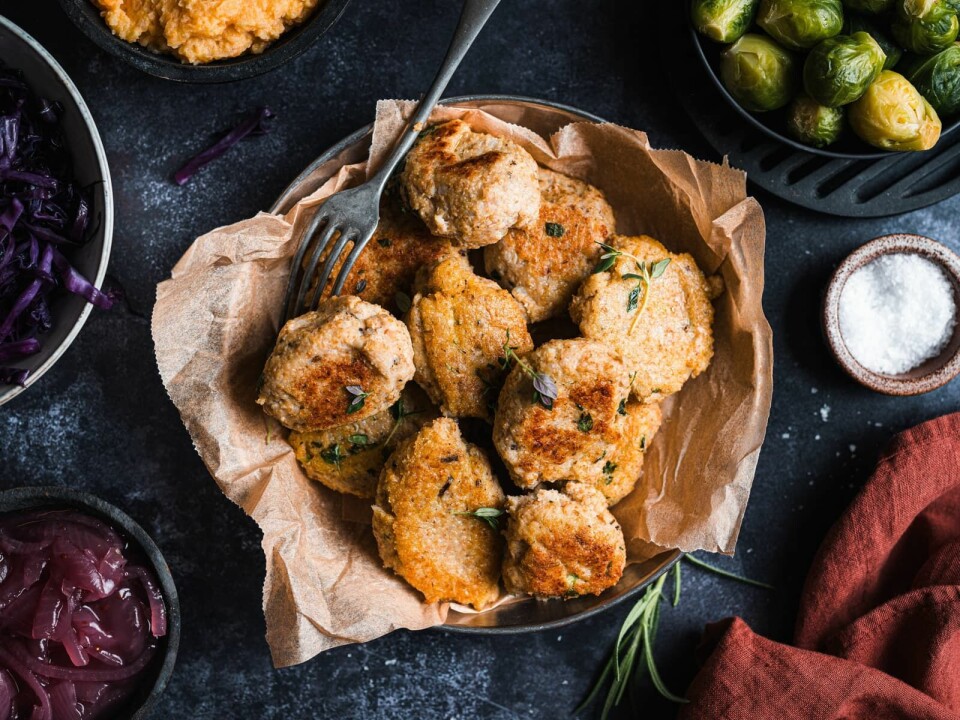
Strange Christmas food
For those who traditionally eat pork belly, the idea of eating cod for Christmas dinner seems like an ordeal. Everything we’re not accustomed to can seem strange, says Pål W. Thorbjørnsen.
He explains that in the past, vegetarian guests were often seen as difficult. Vegetarians had to tread carefully to not offend others. Now, green food choices have become much more common, and the trend is growing each decade, according to the Norwegian Vegetarian Association.

“Attitudes are changing. I recommend not having discussions about food choices at the table, but rather later. It creates a more pleasant atmosphere,” Thorbjørnsen says.
Food researcher Bahr Bugge points out that dealing with dietary preferences, allergies, intolerances, and ethical beliefs can often become quite complicated.
Obsessed with eating healthy
“Are there no limits to what you can demand in terms of special diets when visiting others? I spoke to some chefs who said that men over the age of 50 are the best guests. The only thing they ask for is more to drink,” Annechen Bahr Bugge says.
She has previously written about orthorexia, which is being extremely focused on eating the right and healthy food.
“There are people obsessed with eating healthily, but then the list of things they won’t eat becomes long, making any form of social dining impossible,” she says.
Christmas food is not particularly healthy.
“It’s less about health and more about tradition, identity, and belonging. Almost everyone in Norway is very fond of Christmas rituals and the social community, where meals play an important role,” Bahr Bugge says.
———
Translated by Alette Bjordal Gjellesvik
Read the Norwegian version of this article on forskning.no
References:
Bugge, A.B. & Henjum, S. Vegetarianisme – en studie av sosiale, praktiske og kroppslige aspekt ved å ha et helt eller delvis vegetarisk spisemønster (Vegetarianism – A study of social, practical, and bodily aspects of having a completely or partially vegetarian diet). SIFO report, OsloMet, 2021.
Bugge et al. Jul – pynt, gaver, klær og mat (Christmas – Decorations, gifts, clothes, and food). SIFO report, OsloMet, 2019.





































